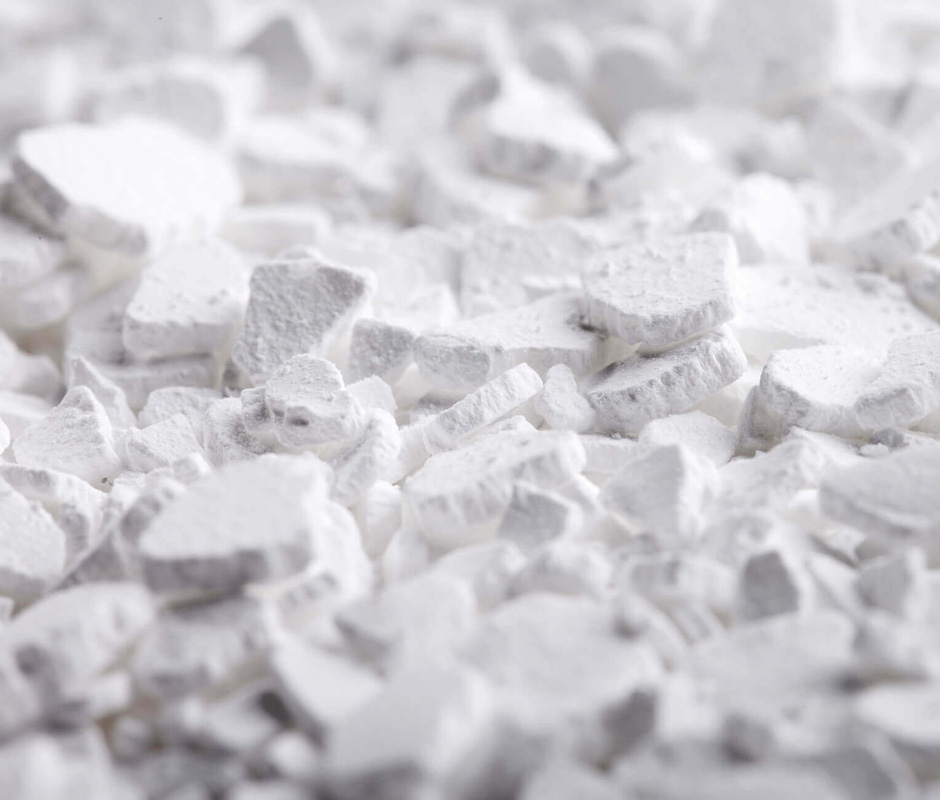One frustrating aspect of rural living is the dust that's often produced by traffic on gravel roads. The Transportation department offers help in abating commonly-occurring road dust that can pose a safety hazard as well as a nuisance for rural residents.
Properties of
CALCIUM CHLORIDE
A variant of salt, calcium chloride is used in a variety of commercial uses like dust control and de-icing roads. A bonus to calcium chloride is that it also lowers the freezing point of moisture, meaning applications can reduce frost damage to roads and surfaces during cold months.
About the Opt-in Dust Control Program
This program allows residents to apply for dust control on rural roads adjacent to private residences. Dust control involves the application of a calcium chloride agent to gravel roads that cause particles to stick together into larger chunks that won't spread via wind or vehicle.
Program Basics
the MD allows residents to apply for dust control on rural roads in front of their residences for a nominal fee. The program typically begins in May and is completed by end of June — weather and road conditions permitting.
Upon review of the dust control program, it was found that fees had remained unchanged since 1997, while related product and application costs had increased steadily and substantially. Accordingly, Council moved to increase program fees to cover associated costs. As of March 1, 2022, the rate was changed to $350.00 per 100 meters of roadway, and $3.50 per additional meter.
Dust control agents are normally applied after the lifting of spring road bans, and as equipment and materials become available. Applications are available at the MD office in Slave Lake, sub-office in Flatbush, and downloadable under Dust Control Resources below.
Please note that dust control applications must be submitted by April 29 for inclusion in the given year's program. Late applications will not be accepted.
MD revises Dust Control Policy
The MD’s Dust Control Program is an important and heavily-utilized seasonal service, but a rewrite of its underlying policy was long overdue. An updated version of Policy E.18 Dust Control (Calcium Based Products) was approved by Council March 29, 2023 and is now in effect. The policy rewrite balances the safety of public-use roadways with roadway safety, fiscal prudence, and fairness to residents who don’t utilize MD dust control services.
To residents who use this program, these changes result in an extended application time window; costs for late applications and reapplications will be borne by the respective landowner; and certain roadways will no longer qualify for no-cost dust abatement services. The MD as a whole will benefit from a sensible and sustainable dust control policy that balances safety concerns with the need for practicality and fiscal prudence.
To ensure pricing is reflective of current market conditions, the cost of subsidized dust control will be reviewed every three years when the MD reviews its purchasing agreement with the supplier.
Please note that dust control applications must be submitted by April 29, 2024 at 4:00pm for inclusion in the given year's program. Late applications will not be accepted.
CONTACT TRANSPORTATION
Cody Borris
Transportation Manager
| cody.borris (@) mdlsr.ca | |
| Phone | 780.849.4888 |
| Toll-Free | 1.866.449.4888 |
| Fax | 780.849.4939 |
For any transportation-related questions or concerns, or to enroll in the dust control program, please contact Transportation Manager Cody Borris during office hours.
Why calcium chloride?
MOISTURE
DURABILITY
LONGEVITY
No-Cost Dust Control Areas
Each year, dust control agents are applied to certain municipal roadways at no charge to homeowners.
2022 Applications
The application of dust control agents shall be carried out by the MD of Lesser Slave River at no charge on municipal roads as follows:
-
Major intersections
-
Hazardous school bus stops due to poor alignments
-
Hamlets
-
Extensive residential developed areas
-
Cemeteries
-
Industrial parks
-
Residences located within 100 metres of local roads on which traffic flows in excess of 150 vehicles daily
Dust control agents are normally applied after the lifting of spring road bans, and as equipment and materials become available.
Transportation & Infrastructure News

Public notice: Widewater Drainage Ditch project




